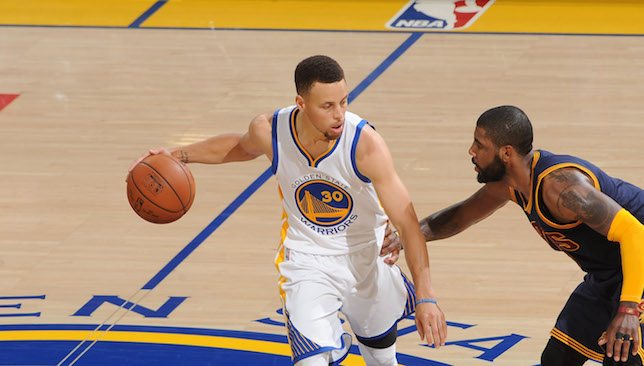
In the annals of Olympic history, the absence from the Rio Games of the world’s finest basketball player, the seventh best golfer and tennis player on the planet won’t make a huge impact. But the withdrawal this week of Steph Curry, following Adam Scott and Dominic Thiem – all with differing reasons – does raise questions about the inclusion of their respective sports on the programme.
We’re just under two months away from the start of the Games but rest assured that trio will be added to.
In basketball alone, it will be a huge surprise to see LeBron James, Kevin Durant and Russell Westbrook after a draining postseason flying to Brazil to compete.
Indeed, after Curry declared this week he wants to recuperate from his ankle and knee injuries throughout August, the idea of Kobe Bryant coming out of retirement to ensure his swansong year ends with Olympic gold has been mooted, such is the expected volume of absentees from Team USA’s previously-confirmed 30-man roster.
Rafael Nadal and Roger Federer’s injury-hit years surely don’t need another tournament added to the schedule, especially so soon before the US Open.
In the case of Federer he has stayed true to the Olympic ideal throughout his career and, at 35 by the time the Games start, this represents his final chance to win gold but, then again, that elusive 18th grand slam remains on what is a fading horizon yet still within touching distance of his ageing body.
Dating back to 1984, 16 Team USA-eligible players have won MVP. Derrick Rose & Stephen Curry are only ones to have never played in Olympics.
— ESPN Stats & Info (@ESPNStatsInfo) June 6, 2016
On the other end of the generational scale, up-and-coming stars of the men’s game such as French Open semi-finalist Thiem and Australian firebrands Bernard Tomic and Nick Kyrgios aren’t competing, denying the tournament a youthful feel.
In terms of golf, South Africa’s Charl Schwartzel and Louis Oosthuizen won’t be there while both world No. 1 Jason Day and No. 3 Rory McIlroy have voiced concerns about the Zika virus, so it would not be a huge surprise to see them pull out.
Each individual case has merit, and the varying personal and professional reasons given by each athlete are totally understandable, but can you envisage Usain Bolt or Michael Phelps doing the same?
The simple answer is no, even if they were carrying an injury; every track and field athlete, swimmer, shooter, sailor, boxer, rower, hockey player and triathlete will be doing their absolute utmost to be there, because the Olympics is the pinnacle of their sport.
ATP top-25 players OUT of Rio Olympics: Dominic Thiem, John Isner, Nick Kyrgios, Kevin Anderson, Bernard Tomic & Feliciano Lopez.
— Gaspar Ribeiro Lança (@gasparlanca) June 3, 2016
For Curry, Scott, Thiem and anyone else who follows their lead from basketball, golf and tennis or football, it simply isn’t, in fact it falls way behind.
The more populist inclusions on the calendar, and golf and tennis most certainly fall into this category, are there to boost interest, swell TV ratings and help satisfy sponsorship obligations. However, what’s worse is they are there at the expense of many sports that could do with just 10 per cent of the sort of recognition and coverage they receive on a daily basis: squash, jiu jitsu (or it’s variations), netball, surfing and skateboarding, to name just five.
The IOC are in a difficult position as they want to keep the Games modern and relevant but at the same time are striving to stay true to their everyman traditions (although the idea that professional boxers can compete in Rio raises concerns if they are as committed to this maxim as before).
But this chase for mass appeal in what is essentially a corporate trade-off dulls two of the great essences of what the Olympics is about.
As a gateway for people to learn and be inspired by sports they perhaps are unfamiliar with, and a platform for those who toil away for years, away from stardom and riches for the opportunity to be considered alongside the likes of Curry, Scott and Thiem.